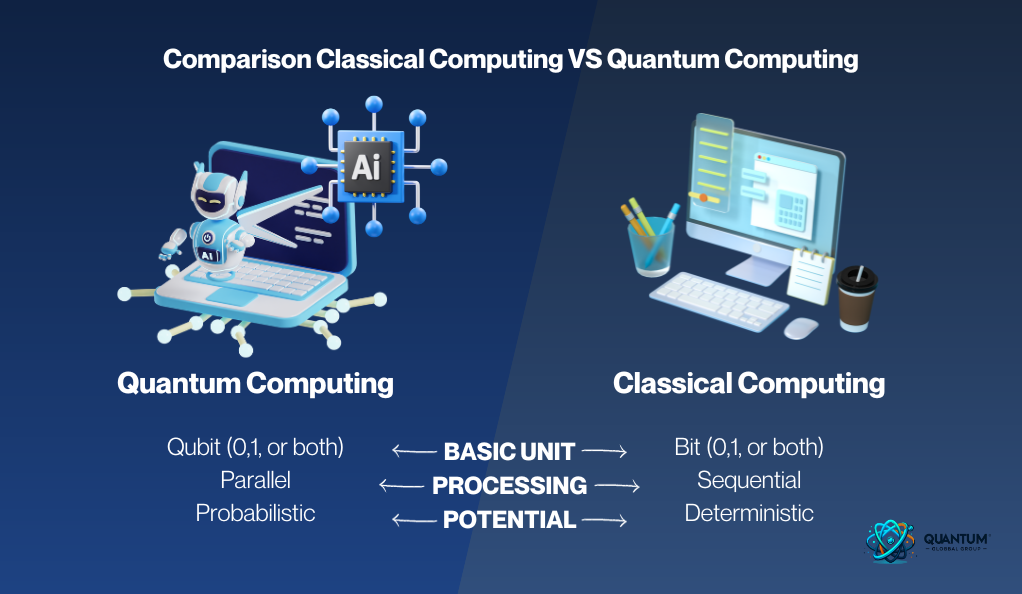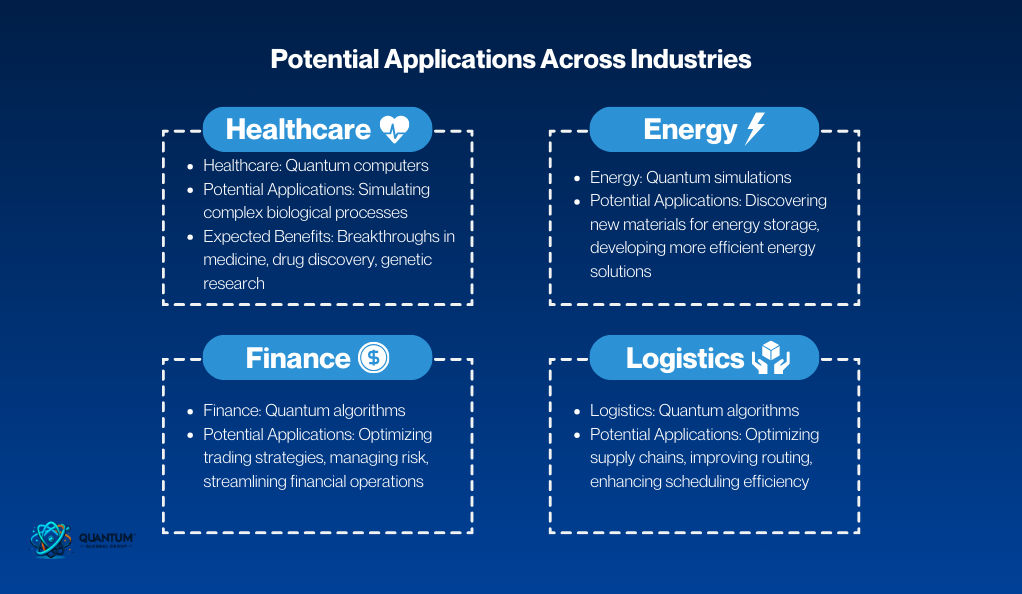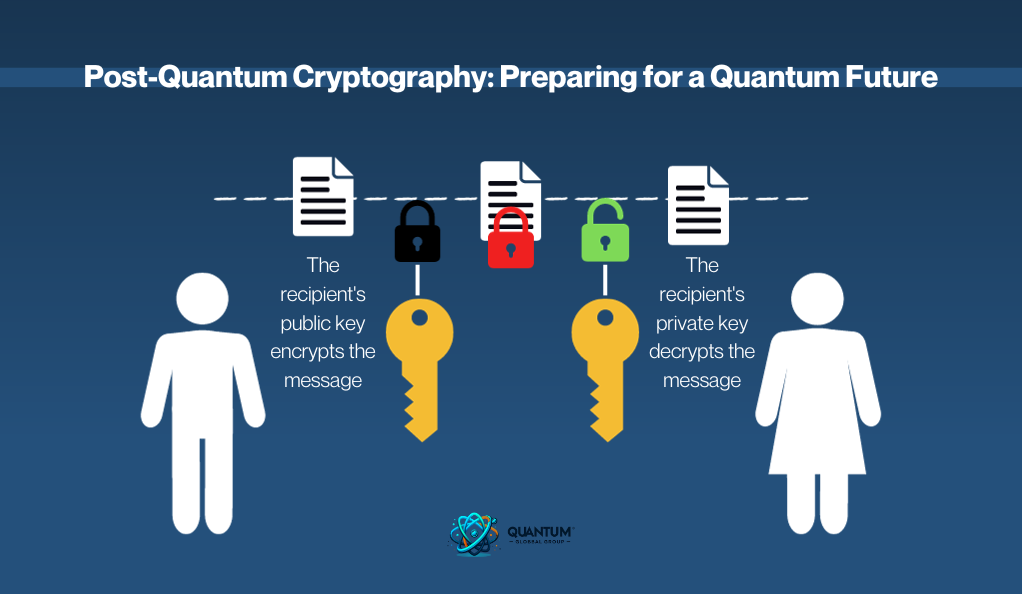In the vast realm of computing, there has always been a relentless pursuit to transcend boundaries, to push the limits of what machines can achieve. The classical computers we’ve grown accustomed to, operating on bits and bytes, have served us well, but as we delve deeper into the intricacies of nature and the universe, we find ourselves in need of a new computational paradigm. Enter quantum computing—a revolutionary approach that harnesses the peculiarities of quantum mechanics to process information in ways previously deemed impossible.
What is Quantum Mechanics?
At its core, quantum mechanics is the branch of physics that studies the smallest particles in the universe, those that exist at the atomic and subatomic levels. It’s a world where particles can exist in multiple states simultaneously (superposition), where they can be ‘entangled’ such that the state of one instantly affects the state of another, regardless of the distance between them. It’s a realm where the traditional laws of physics are defied, giving rise to phenomena that are both bewildering and fascinating.
Why Quantum Computing?
Classical computers, for all their prowess, have limitations. Certain problems, especially those involving vast amounts of data or complex simulations, remain computationally infeasible. Quantum computers, however, operate on ‘qubits’ instead of bits. Unlike a classical bit that can be either a 0 or a 1, a qubit can exist in a superposition of both states. This allows quantum computers to process a massive amount of information simultaneously, offering the potential to solve problems that are currently beyond our reach.

| Comparison | Classical Computing | Quantum Computing |
|---|---|---|
| Basic Unit | Bit (0 or 1) | Qubit (0, 1, or both) |
| Processing | Sequential | Parallel |
| Potential | Deterministic | Probabilistic |
The Quantum Computer
Quantum computing is not merely a faster version of classical computing; it represents a fundamental shift in how we approach problem-solving. At the heart of this paradigm are the principles of quantum mechanics, which, though counterintuitive, provide the foundation for the immense power of quantum computers.
The Role of Qubits and Superposition
In classical computing, the smallest unit of data is a ‘bit’, which can either be a 0 or a 1. Quantum computing, however, operates on ‘qubits’. A qubit, derived from “quantum bit”, has the unique property of being in a superposition of states. This means it can represent both 0 and 1 simultaneously. Imagine reading a book where each page can tell two stories at once, and you begin to grasp the potential of superposition.
Quantum Entanglement: A Bond Beyond Distance
One of the most intriguing phenomena in quantum mechanics is ‘entanglement’. When two qubits become entangled, the state of one qubit is dependent on the state of the other, no matter the distance between them. This interconnectedness allows for faster and more efficient information transfer, making tasks like quantum teleportation possible.
Harnessing Quantum Phenomena
Building a quantum computer is not just about leveraging superposition and entanglement. It’s about creating an environment where these quantum states can be controlled and manipulated to perform computations. This involves cooling systems to near absolute zero temperatures, isolating qubits from all external influences, and developing algorithms that can harness the probabilistic nature of quantum mechanics.
| Quantum Phenomenon | Description | Application in Computing |
|---|---|---|
| Superposition | Qubits exist in multiple states simultaneously | Parallel processing of information |
| Entanglement | Interconnectedness of qubits | Faster information transfer and encryption |
| Quantum Tunneling | Particles pass through barriers | Efficient search algorithms |
The Implications of Quantum Computing
The potential applications of quantum computing are vast. From simulating complex molecular structures to optimizing financial models, the power of quantum computers could revolutionize industries. However, with great power comes great responsibility. The same capabilities that allow quantum computers to solve complex problems also pose threats to current encryption methods, potentially rendering them obsolete.
Investments and Advancements
The Quantum Gold Rush
The promise of quantum computing has ignited a global race, with nations, tech giants, and startups vying to achieve quantum supremacy. The potential to revolutionize industries, from healthcare to finance, has led to significant investments in research and development, making quantum computing one of the most sought-after frontiers in technology.
National Endeavors: A Global Quantum Race
Countries around the world recognize the strategic importance of quantum computing. Governments are pouring billions into quantum research, aiming to establish themselves as leaders in this nascent field. The U.S., China, and the European Union have all announced multi-billion dollar initiatives to accelerate quantum research and development.
Private Sector Pioneers
Tech giants like IBM, Google, and Microsoft are not far behind. These companies are investing heavily in quantum research, building state-of-the-art labs, and collaborating with universities to push the boundaries of what’s possible. Their efforts have already led to significant breakthroughs, from the development of advanced quantum processors to the establishment of cloud-based quantum computing platforms.
Potential Applications Across Industries

The investments are driven by the myriad of applications quantum computing promises:
- Healthcare: From drug discovery to genetic research, quantum computers could simulate complex biological processes, leading to breakthroughs in medicine.
- Finance: Quantum algorithms could optimize trading strategies, manage risk, and streamline financial operations.
- Energy: Quantum simulations could lead to the discovery of new materials for energy storage and more efficient energy solutions.
- Logistics: Optimizing supply chains, routing, and scheduling could become more efficient with quantum algorithms.
Quantum Algorithms: A Game Changer
While the hardware and qubits form the foundation of quantum computers, it’s the algorithms that truly harness their power. Quantum algorithms leverage the principles of superposition, entanglement, and interference to solve problems in ways that classical algorithms cannot.
The Power of Quantum Parallelism
One of the most significant advantages of quantum algorithms is their ability to process vast amounts of information simultaneously, thanks to the principle of superposition. This parallelism allows quantum computers to explore multiple solutions at once, drastically reducing computation time for specific problems.
Notable Quantum Algorithms and Their Impact
Several quantum algorithms have been developed that showcase the potential of quantum computing:
- Shor’s Algorithm: Perhaps the most famous quantum algorithm, developed by Peter Shor, efficiently factors large numbers, posing a significant threat to classical encryption methods based on the difficulty of factorization.
- Grover’s Algorithm: Developed by Lov Grover, this algorithm can search an unsorted database faster than any classical algorithm. While not exponentially faster, it still offers a significant speedup.
- Quantum Fourier Transform: A fundamental component of many quantum algorithms, including Shor’s, it allows for the efficient analysis of quantum states.
- Quantum Machine Learning Algorithms: These algorithms aim to harness the power of quantum computing to analyze vast datasets, potentially revolutionizing fields like AI and data analytics.
Quantum Computing vs. Classical Cryptography
In today’s digital age, encryption forms the bedrock of security. From online transactions to confidential communications, encryption ensures that data remains private and secure. Classical encryption methods, such as RSA and ECC, rely on the difficulty of certain mathematical problems, like the factorization of large numbers, to ensure security.
The Quantum Threat
Enter quantum computing, and the landscape of encryption faces a seismic shift. Algorithms like Shor’s can, in theory, factor large numbers efficiently, potentially breaking the security of many classical encryption methods. This capability poses a significant threat, as much of the world’s digital security infrastructure relies on these encryption techniques.
Post-Quantum Cryptography: Preparing for a Quantum Future

While large-scale, fault-tolerant quantum computers capable of breaking classical encryption are not yet a reality, the potential threat has spurred research into ‘post-quantum cryptography’. These are cryptographic methods designed to be secure against both classical and quantum threats. Several post-quantum cryptographic algorithms are currently under evaluation, with the aim of standardizing them for future use.
The Balance Between Security and Quantum Advancements
As quantum computing progresses, there’s a delicate balance to strike. On one hand, the advancements promise unparalleled computational capabilities, opening doors to solutions for some of the world’s most complex problems. On the other, these same capabilities could undermine the very fabric of digital security.
| Cryptography Type | Description | Vulnerability to Quantum Attacks |
|---|---|---|
| RSA | Relies on the difficulty of factoring large numbers | Vulnerable to Shor’s Algorithm |
| ECC | Based on elliptic curve problems | Vulnerable to quantum algorithms |
| Post-Quantum | Designed to be secure against quantum threats | Currently considered secure |
Conclusion
As we conclude our exploration into the world of quantum computing, it’s evident that we’re on the brink of a transformative era. The quantum realm, with its mystifying principles and unparalleled potential, promises to reshape not just the landscape of computing, but also the very fabric of our understanding.
The challenges are undeniable, from technical hurdles to ethical dilemmas. Yet, history has shown that with challenges come innovations. The quantum journey, while complex, is a testament to human ingenuity and the relentless pursuit of knowledge.
In embracing the quantum era, we’re not just adopting a new technology; we’re opening the doors to a world of possibilities, where the boundaries of computation, exploration, and understanding are continually expanded.




